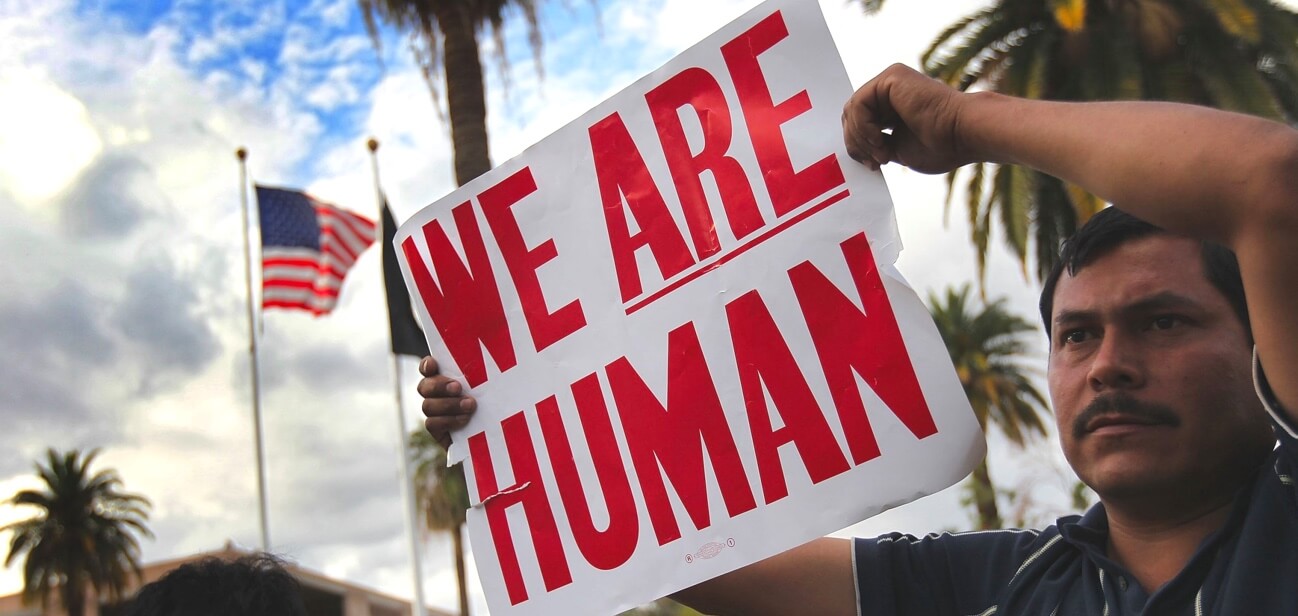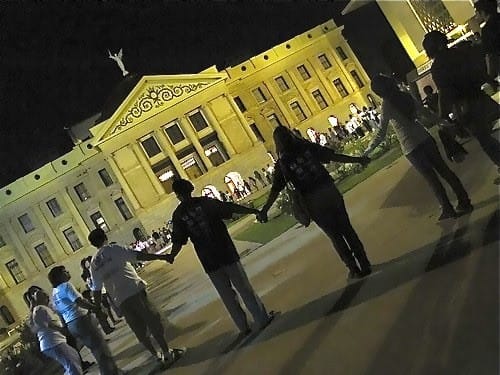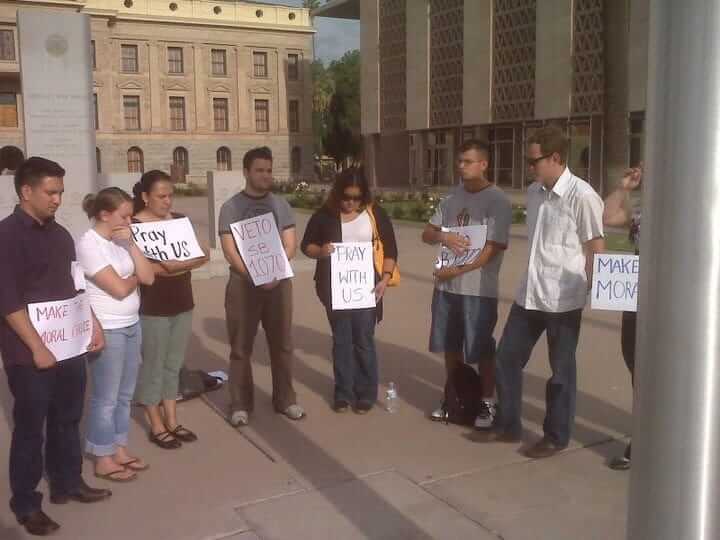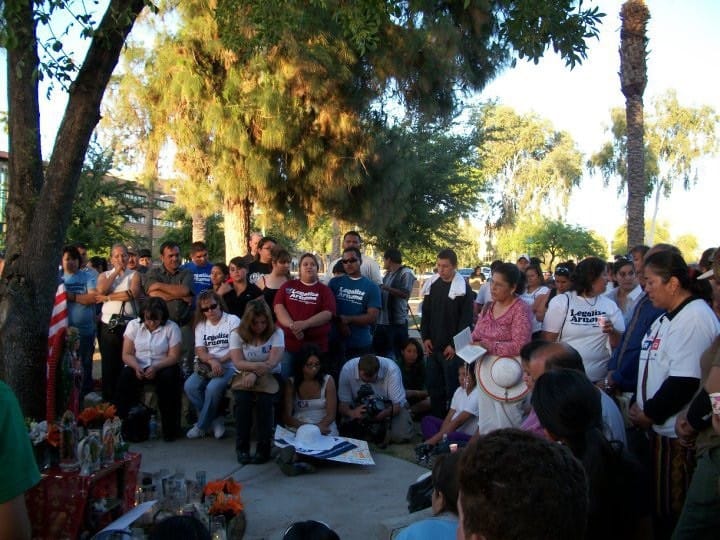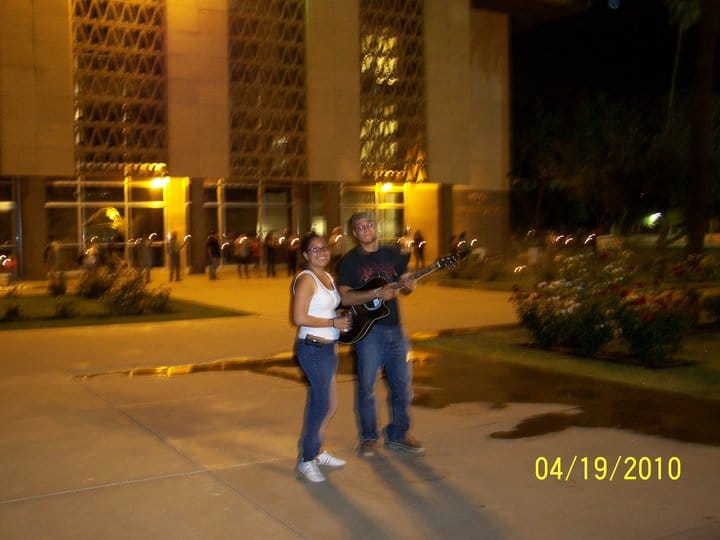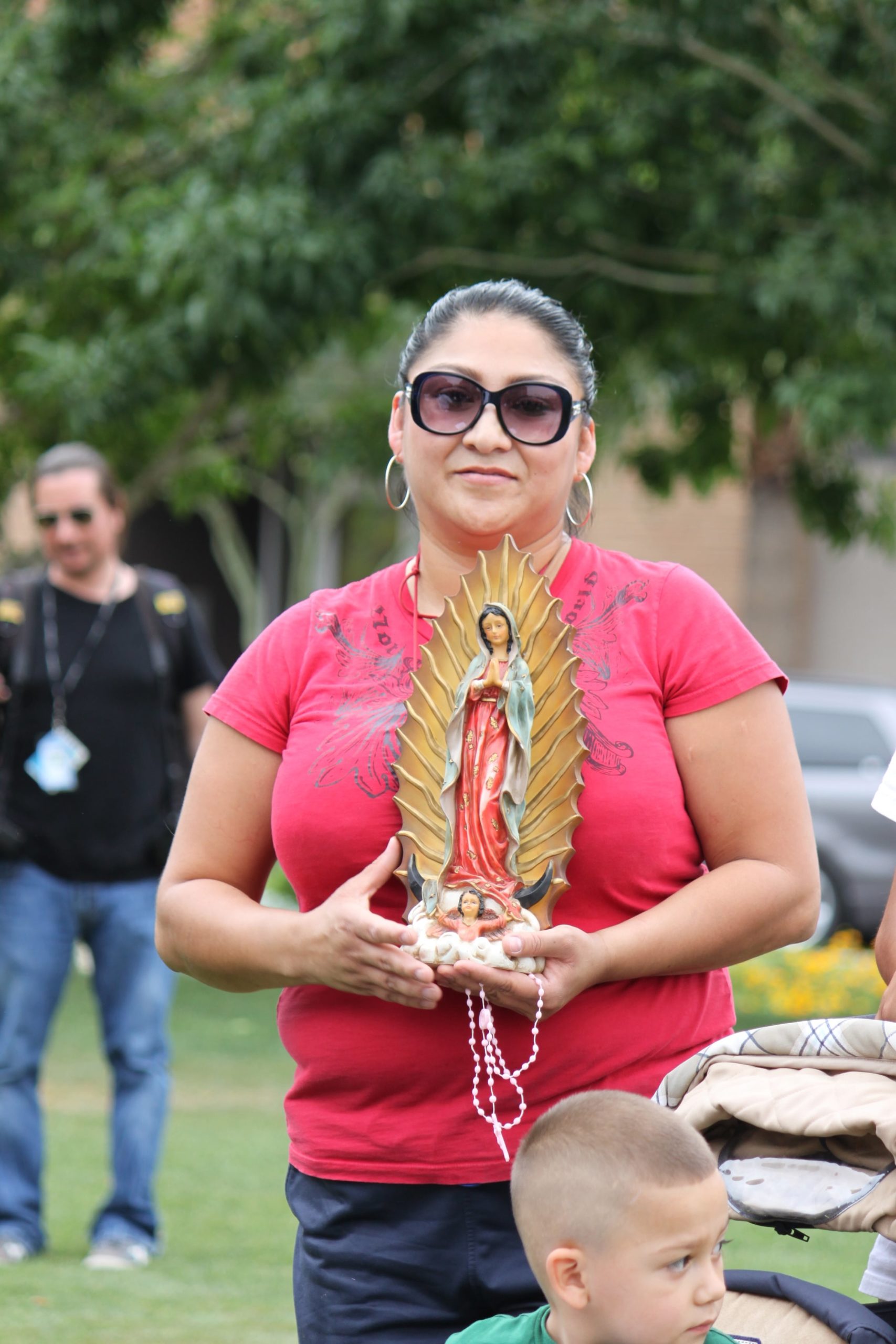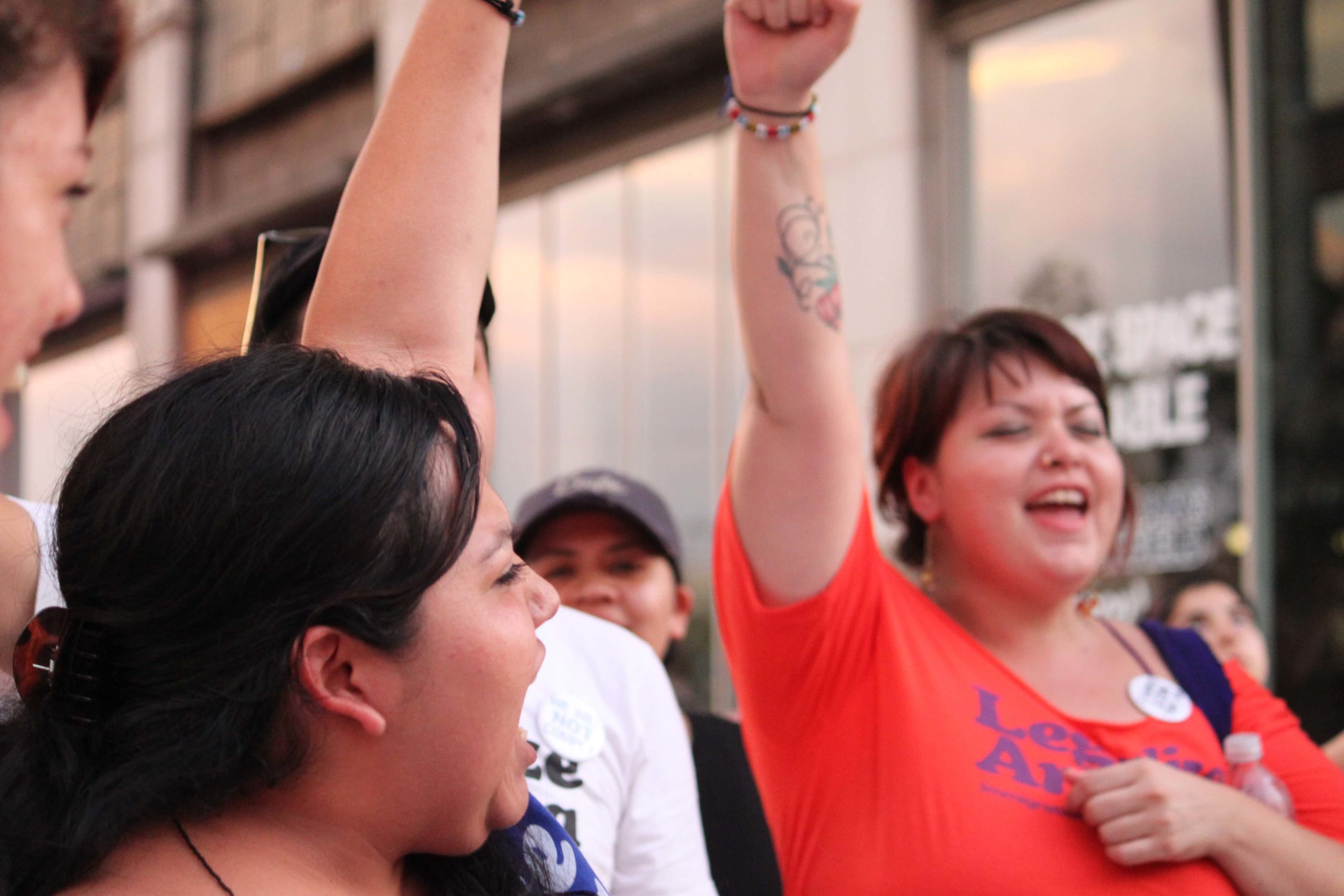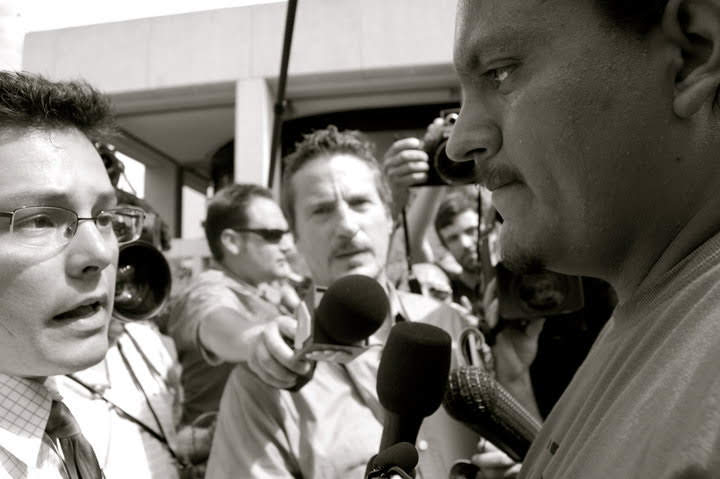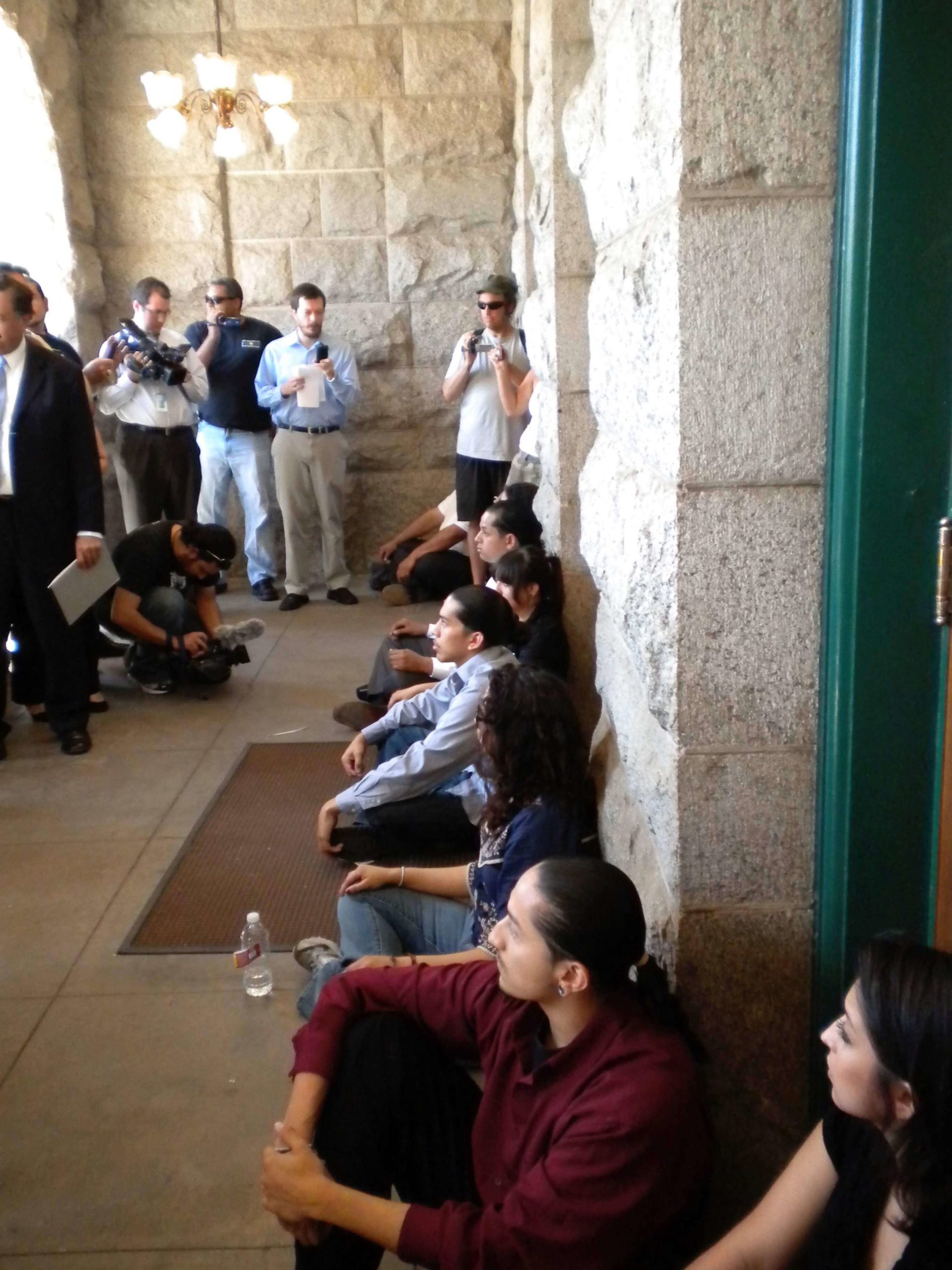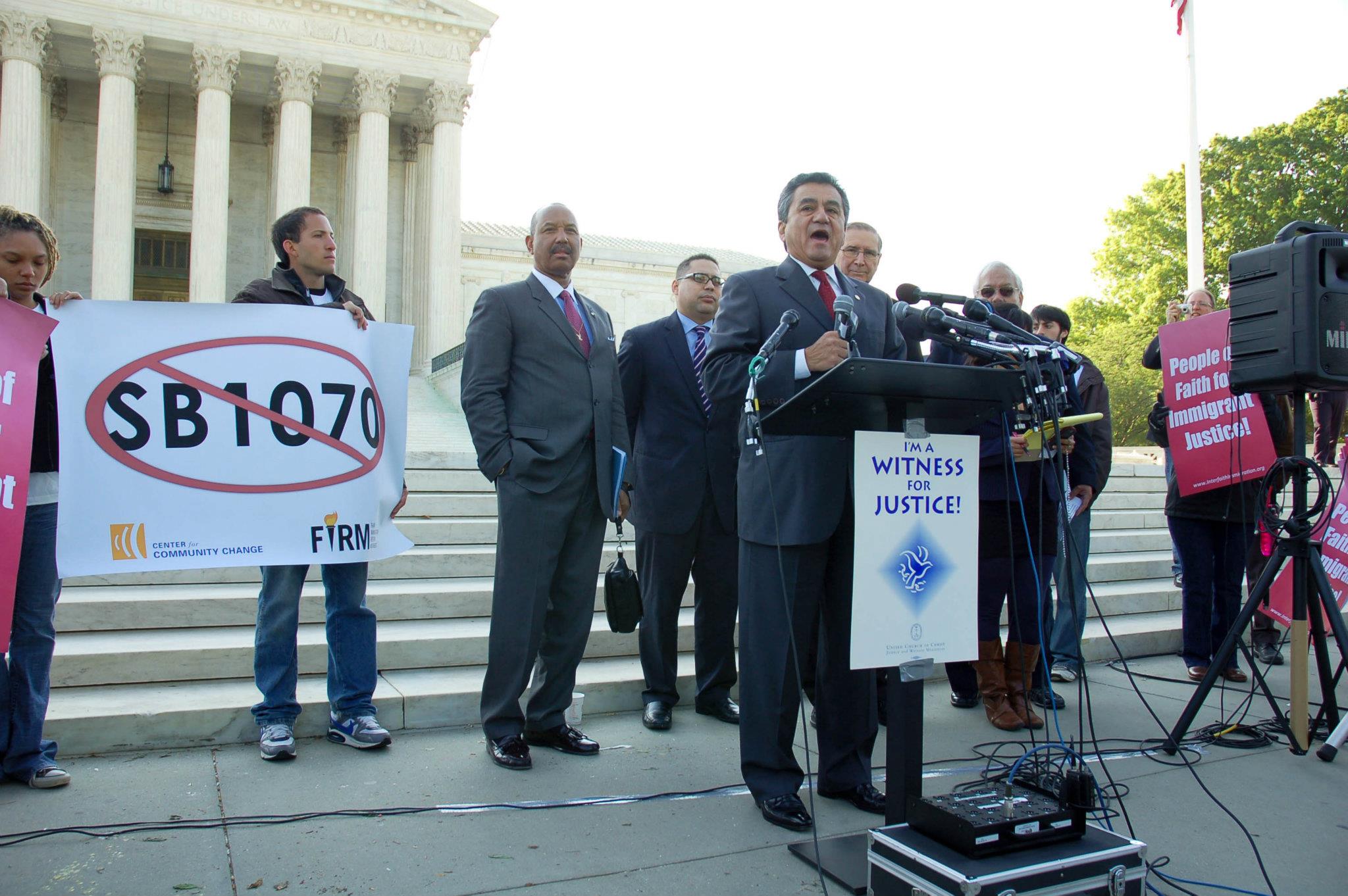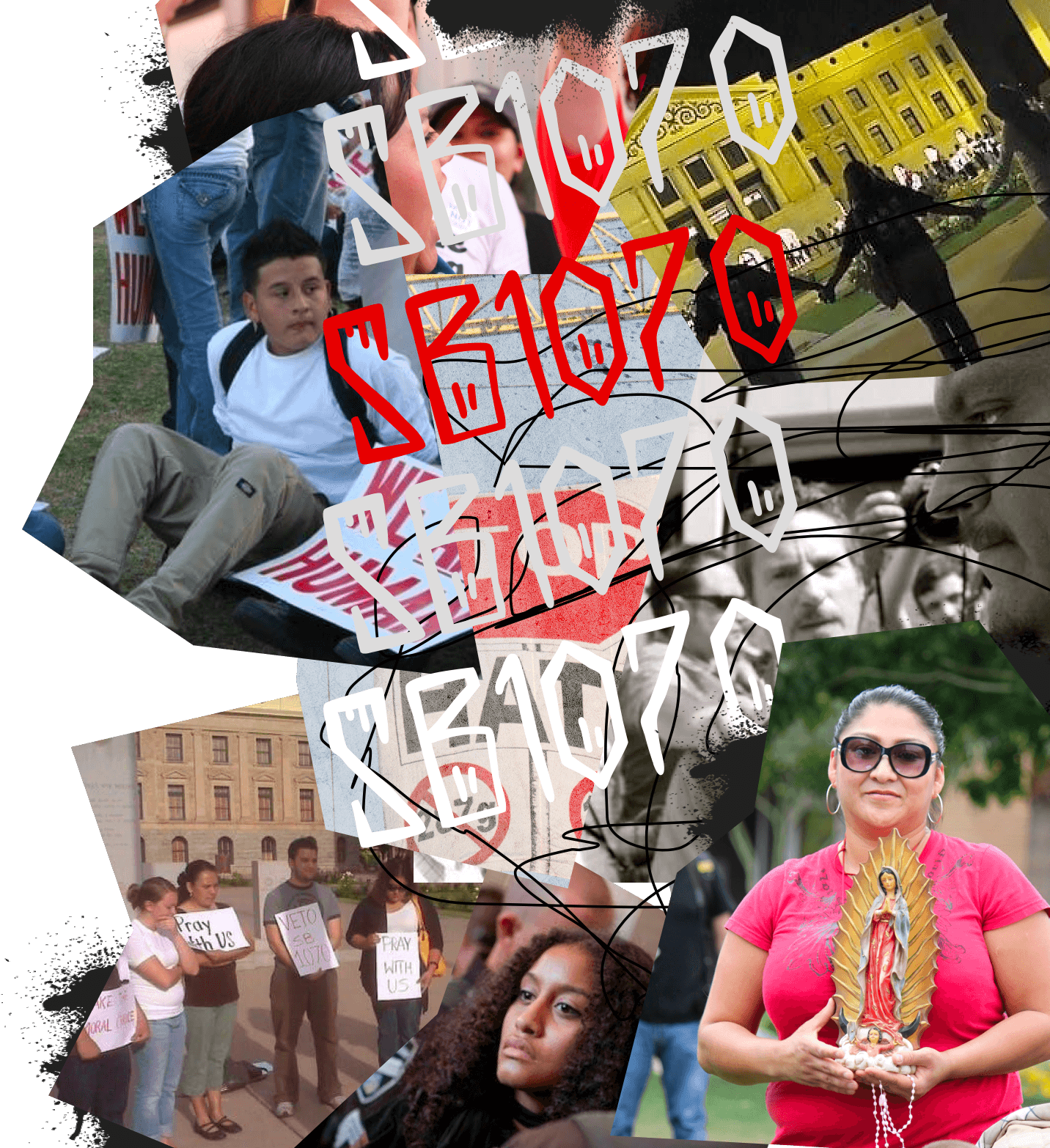
Arizona community was assaulted by our lawmakers

Decades of escalation reach a boiling point
In 2010, 10 years of national anti-immigrant sentiment reached a boiling point and Arizona was the battleground. Starting with English Only education in 2000, Arizona lawmakers passed a slow burn of laws that hurt or targeted Latinxs in some way. SB1070 was the latest of 10 years of anti-immigrant and anti-Latinx laws. Arizona Latinxs were fed up with the attacks on their families and spoke out!
It felt like such a profound attack on people, this more brazen approach. It felt like this is how you play politics in Arizona and win.
Laura Dent
A THREAT TO LATINXS
THE LAWS AND EVENTS THAT LED UP TO SB1070
From Maricopa County Sheriff Joe Arpaio terrorizing the community to national xenophobic legislation moving through Congress, the years before SB1070 saw a trend of anti-immigrant escalation throughout the United States. SB1070 was the outcome of this escalation: It was the most viscerally anti-immigrant law in recent history at the state level.
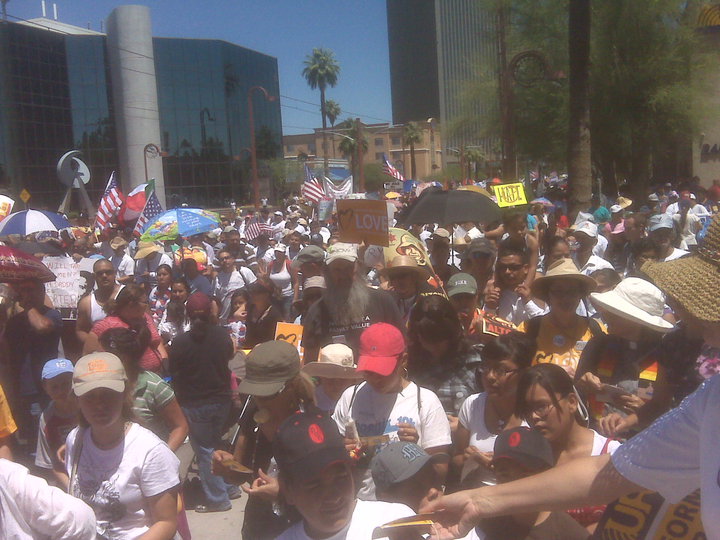
Local leaders organized a march of 20,000 people speaking out against SB1070.
Leaders in the Latinx community understood the reality of immigration in Arizona. Undocumented immigrants are a vital part of our community and SB1070 gave permission to the state to wrongfully target all Latinxs in search of our undocumented neighbors, family, and friends. This discriminatory law made “show me your papers” a standard part of any interaction with police, pushing people to deportation for “appearing illegal.” Our community knew it would lead to harassment, racial discrimination, and targeting by the police. The writing was on the wall - Latinxs were under attack and SB1070 needed to be stopped!
ACTIVISTS AND LEADERS APPEALED TO JAN BREWER'S MORALITY
Before the bill was passed, leadership pulled together marches, press conferences, lobbying, and letters urging the legislature to stop SB1070 and kill the bill. Despite intense opposition and weeks of lobbying and demonstrations, the law had deep support in the super-majority Republican legislature. The Hispanic Community Forum, later known as Somos America, came together to organize marches and rallies as early as 2006. In one of many marches, 20,000 Latinxs and allies took the streets and peacefully marched against the bill. Discrimination was on display and the community came out strong in opposition.
Community and business leaders were the first to speak out against SB1070. Being ignored, community leaders came together in a 109 day sustained vigil, pushing Jan Brewer to veto the bill.
The community organized peaceful protest and civil disobedience in opposition to the bill
Word was spreading about how harmful SB1070 was going to be to our community and all efforts were made to stop it. The community lobbied, held meetings, and signed letters. Students walked out of school and to the capitol to show their opposition. Religious groups held vigils and fasts. Organizers pulled together peaceful marches and protests to persuade Governor Jan Brewer not to sign the bill. People were hopeful and determined to stop the bill.
People held civil disobedience and direct action
Despite the enormous effort by leaders and community, SB1070 made it out of the legislature and landed on the Governor’s desk. The same day that Jan Brewer was expected to sign the bill, leaders gathered to speak out and 9 college students chained themselves to the Capitol Museum. The Capitol 9 were arrested and their courage kicked off a series of direct actions that displayed the power of the community.
Despite open opposition, Jan Brewer signed SB1070, cementing Arizona’s new reputation of the State of Hate. The consequences were felt almost immediately as families left their homes in Arizona and moved to friendlier states around the country. But the community wasn’t done. We were ready to fight back.

10 Years of power
Only the beginning of power building
After the bill was signed, the legacy of community leaders trained young activists to affect change in the community. The energy of the community launched new efforts in their homes and to fight discrimination on multiple fronts.
Read the full story